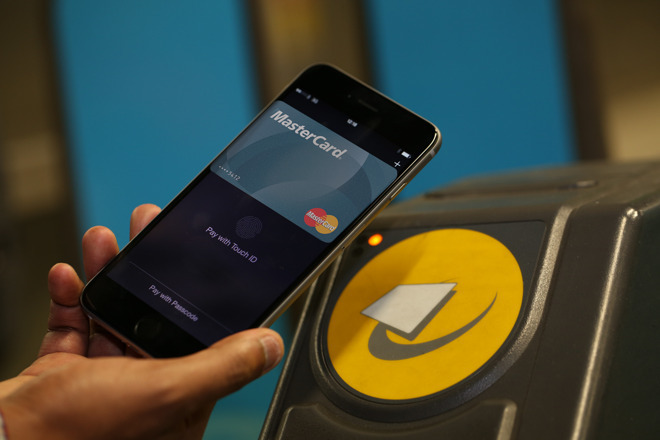The United Kingdom is planning to launch an app that allows European Union citizens to apply to stay in the country after Brexit next year, but while it will work with Android devices, officials are reportedly having issues running it on iPhones and iPads.

The UK will be leaving the European Union in March 2019, an event that brings with it numerous challenges, including what happens to EU citizens living in the country. One solution by the government is to create an app that enables the estimated 3.5 million EU citizens to apply for "settled status."
According to the BBC, the app asks three "simple" questions, requires the user take a selfie, and then to scan the contactless chip embedded in the passport to verify their identity. While Android devices are able to use NFC to communicate with the passport chip, the same process cannot be performed on an iPhone.
The passport scanning is required as an authentication procedure, only using the embedded chip to confirm the person's identity. The app is solely for applying for the settled status designation, and while it does acquire data from a passport, it does not become an electronic passport or a form of identification in its own right.
Under the existing situation, those wishing to take part in the scheme but have iPhones will have to borrow someone else's Android device to use the app or post their passport to the UK Visa and Immigration Service for processing, which may take longer than the anticipated two-weeks for an app-based decision.
The UK's Home Office was aware there would be problems with Apple devices at the time of the app's announcement earlier this year, but hoped there would be an update that would free up NFC for passport scanning. Despite requests from ministers and a visit to Apple Park by Home Secretary Sajid Javid, Apple has so far refused to implement the changes.
Apple has largely refrained from opening up NFC from its existing Apple Pay transactions for security purposes, with relatively few non-financial uses permitted. A September update to Core NFC, the iOS system used for such transactions, enabled an NFC tag to open up a specific app for reading it among other changes, but only using a specific set of formats.
While rumors suggested NFC would be unlocked fully to third-party apps as part of iOS 12.1, Apple advised to the BBC this was not true.
Apple is reportedly said to be continuing to work with the Home Office on the app, but sources would not speculate on whether it will be ready in time for the March Brexit deadline. Sources in the Home Office advised "we are continuing to engage with Apple at the highest level."
The issues have led to immigration minister Carloine Nokes expressing frustration at the matter on Tuesday to the Home Affairs Committee. Minsters were advised by Nokes the Home Office could not be blamed for the issue, as Apple "won't release the upgrade we need in order for it to function."
The UK is not the only government who would stand to benefit from being able to scan passports with an iPhone. The Netherlands has also asked for Apple to do the same, which would enable citizens to authenticate themselves using the travel document to access governmental digital services.
Apple has previously expressed an interest in making iPhones work as a passport, with on August patent application suggesting the use of the Secure Enclave and NFC to be used as a form of official identification.


